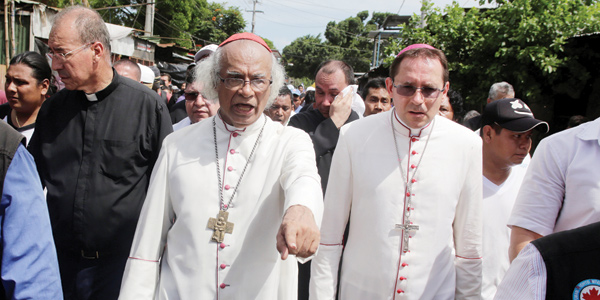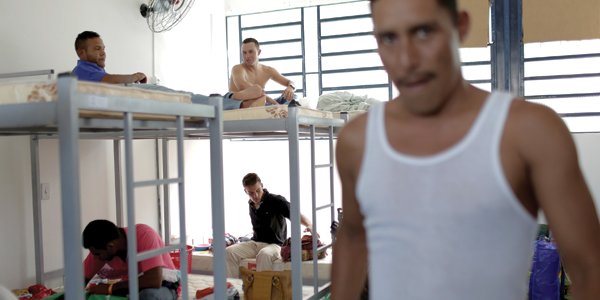A new Peruvian support service for the hundreds of thousands of refugees fleeing the socialist regime of Venezuelan President Nicolas Maduro has been opened at the Lima headquarters of the Peruvian Episcopal Conference.
The Conference President, Archbishop Héctor Miguel Cabrejos Vidarte of Trujillo, said the service will include a social work professional and a legal expert, to inform Venezuelan refugees about their rights in Peru.
The service will coordinate with public refugee services and Catholic houses of hospitality to migrants, such as “Encuentros”, run by Jesuits in Lima. “The Conference wants to combine efforts to find ways to improve the living conditions of these migrants, to help them in the transfer that they suffer because of the serious economic, political and social crisis in their country,” Archbishop Cabrejos Vidarte said.
Venezuela’s economy and public services are in a ruinous state as a result of the policies of Mr Maduro and his ruling Socialist Party. The service was one of several new initiatives in Peru marking World Refugee Day on 20 June. That day, many church people joined a solidarity march with Venezuelan refugees through the streets of Lima.
Peru’s government has stated that its immigration policy aims to “build bridges” and “not walls” and it allows Venezuelans to work and study in the country. Some 350,000 Venezuelans have sought refuge in Peru, fleeing inflation, shortages, arbitrary killings and political unrest.
Meanwhile, the French bishops have accused the leaders of France and other countries of cynicism towards migrants after Italy and Malta refused to allow the rescue ship Aquarius entry earlier this month. The ship then travelled to Spain, taking more than 600 migrants to safety. The French bishops’ conference spokesman, Mgr Olivier Ribadeau Dumas, accused the European Union of watching from the sidelines as Italy and Greece received the most migrants. He also denounced the “indecency” of US President Donald Trump’s decision to separate children from migrant parents. Mr Trump has since rescinded the order but has vowed to reinforce the US-Mexico border. “We’ll have this migration problem for at least a generation, so we can’t just close the borders,” Ribadeau Dumas said. “And it’s not enough to open them, we must integrate these people.”
Referring particularly to Iraqi and Syrian refugees who have fled their countries, the UN Secretary-General on 20 June called for “the return of Christians and members of other religious minorities” to their countries of origin. António Guterres affirmed that Christianity was “an integral part” of Middle Eastern culture.
In Lebanon, the Caritas Director expressed concern that the country “can no longer bear the burden of welcoming” Syrian refugees. Fr Paul Karam said the Lebanese were “becoming increasingly impoverished” in their small country, which is hosting a million Syrian refugees. Fr Karam said: “It is necessary for the international community to promote a real peace process”, and noted that, two weeks ago, Lebanon’s Maronite bishops had called for the “safe and dignified” return of refugees. No UN repatriation plan in place, however, as a political solution to the Syrian war is a precondition to repatriation.
In a joint declaration, religious leaders in Austria – Cardinal Christoph Schönborn for the Catholic Church, Bishop Michael Bünker for the Protestant Church, Ibrahim Olgun for the Muslim community and Rabbi Schlomo Hofmeister for the Jewish community – recalled that “it is intrinsically part of religious people’s self-understanding to help and give comfort to those who are exiled, wounded or homeless”.
In Germany, Archbishop Stefan Hesse of Hamburg, responsible for refugee affairs in the bishops’ conference, told domradio.de that his message was: “Let us not forget the 65 million refugees worldwide, 25 million of whom are no longer in their homelands. They have had to flee because of horrendous human rights violence, war or civil war and are looking for security and somewhere where human dignity will be upheld.”



 Loading ...
Loading ...